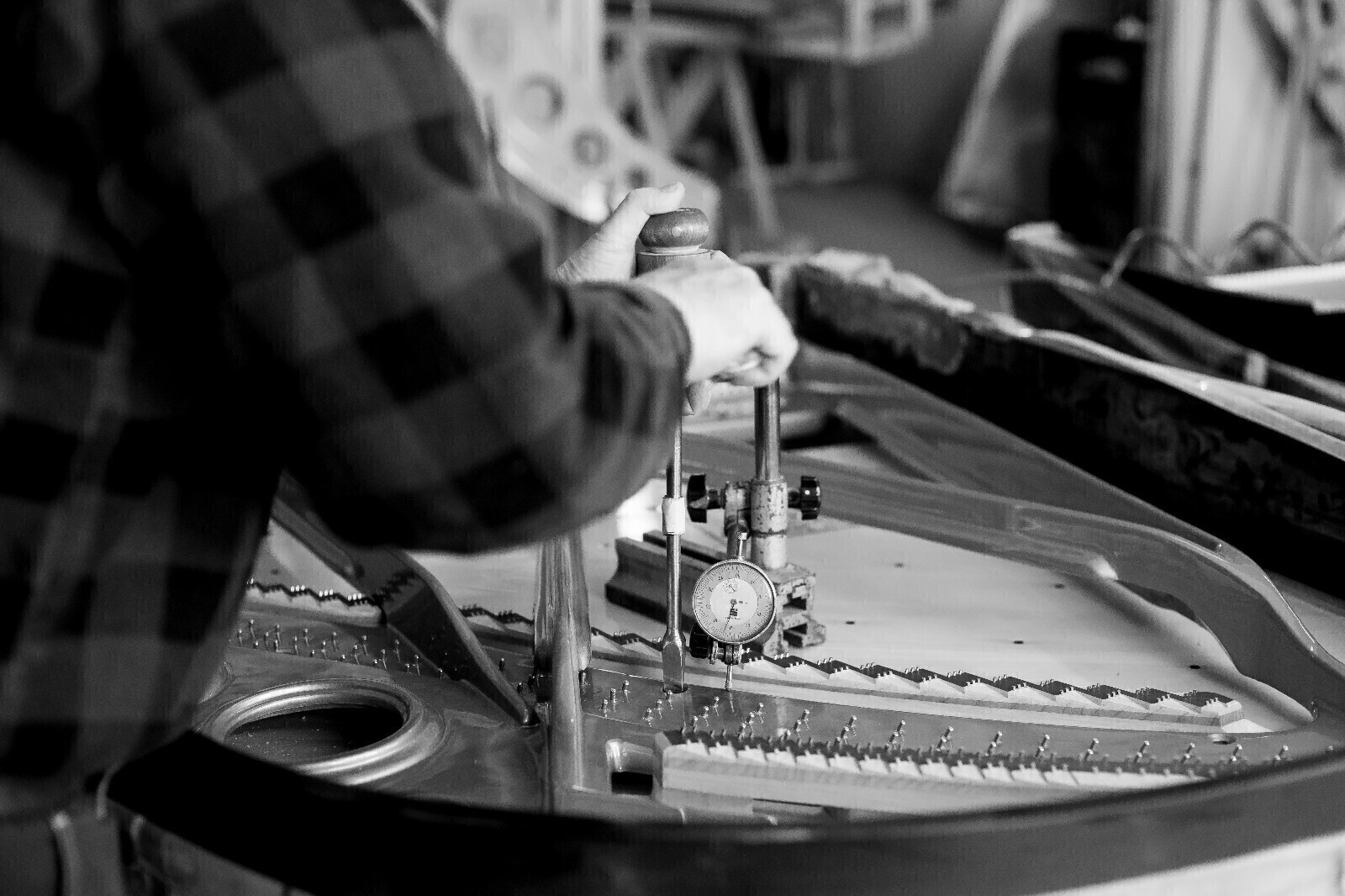Blüthner
The Blüthner factory was established in November 1853 in Leipzig, Saksen by Julius Blüthner. Leipzig, alongside Paris, London and Vienna, at the time formed the epicentre of the European music culture. In 1956 the Blüthner-Patentmechanism was brought to market, a spring mechanism which made the pianos lighter to play. Blüthners most important invention however is the 1873 Aliquot system. This Aliquot system was presented at the 1876 World Expo in Philadelphia, where it was awarded a gold medal.
Until 1903 Blüthner earned highest place in 12 world exhibitions, along with countless other awards. Julius Blüthner used these world exhibitions not only to showcase his latest innovations, but also to establish an international distribution network.
In 1936 the first Blüthner grand piano crossed the Atlantic Ocean in the zeppelin LZ 129 “Hindenburg”, providing the first pianoconcert in the air to be broadcast by 63 radio channels across the world. To save weight, the base construction of this grand piano was made of aluminium, upholstered with tanned yellow pigskin leather.
It is beyond doubt that the First and Second World Wars had an impact also on piano producers. Many employees were called to military duty and lost their lives in the war. Connections were lost, particularly those abroad. Export came to a halt and domestic demand for pianos was very low. In the context of patriotic duty, the company supplied to the army. In 1943 a bombing caused the factory to burn down entirely, destroying all archives as well as instruments.
